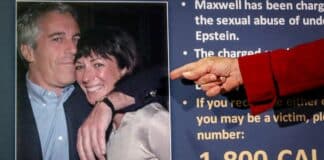Homelessness and drug use continue to run rampant in Portland as the city’s leaders focus on gun violence.
The Democratic mayor of Portland, Oregon, Ted Wheeler, has declared a gun violence emergency in his city. “We will not stop until we bring peace back to those Portland neighborhoods too often caught in the crossfire,” he said at a press conference on July 22. Portland is reeling from a combination of a crime spike, a large and growing homeless population, and the decimation of the local police department.
In 2020, Portland was rocked by months of protests and riots. Under pressure from the defund the police movement, the city government voted to cut its police budget. Subsequently, police officers fled their thankless jobs. Two hundred fifty of them have resigned or retired since July 2020, with more retirements expected this summer. This has left the Portland Police Department barely functioning.
From 2019 to 2020, Portland’s homicide rate jumped 83 percent, one of the largest increases of any city in America. More than 50 people have been shot so far this year, meaning the city is likely to overtake last year’s record of 90 homicides.
Portland is also facing a homelessness crisis. In 2019, there were 4,015 homeless people in the Portland metro area, but in 2022 this number had risen to 5,228, according to data from the Department of Housing and Urban Development.
The struggles of First Orthodox Presbyterian Church are a microcosm of what has gone wrong in Portland. The church is located in northeast Portland, far from the epicenter of the 2020 protests, but the members feel the reverberations.
The church, which has about 150 members, has been meeting in the same building for 77 years, but the surrounding neighborhood has been deteriorating for some time. On the church’s block, there is a strip club, a methadone clinic, a food bank, and a seedy motel that church members believe serves as a hub of drug dealing and prostitution.
During the pandemic, however, the problems went into overdrive. A large drug-use camp developed on the street directly behind the church’s parking lot. Since last summer, four homicides have taken place there, prompting “The Oregonian” newspaper to dub it “Portland’s Deadliest Block.”
What do you do when your church is located on your city’s “deadliest block”? For starters, church leadership decided to hire private security. About a year and a half ago, they started paying a firm called Hawkeye Protection a monthly fee to make two stops on the church property each night. “If Hawkeye sees someone on the property, they will tell them that they are not allowed to stay there and then hang around until they leave the property,” said church member Jamie Bradshaw.
After several incidents, the church also reluctantly started locking its doors during services. “We try to keep the door locked during services so that we don’t have people wandering into the church. Three years ago, we would never even have considered leaving the outside doors locked,” Bradshaw explained. The church also recently installed security cameras.
But church members wanted to do more than just protect their building. They wanted to love their neighbors. Thus, they asked Portland Rescue Mission, a nonprofit that works with the homeless, for guidance on the best way to minister to the people who frequent the drug camp. “We want to help people who need help. And we wanted to have the right attitude about it,” insisted Bradshaw.
Portland Rescue Mission evaluated the camp but concluded it was purely a site for drug use. Unlike some homeless encampments, no one lived there. Bradshaw recounts that Portland Rescue Mission sent the church an email that said, “We’ve been doing an assessment of that homeless encampment. And, in our view, the best thing you can do is get them to leave because they’re dangerous. They’re not interested in getting help. And it’s not safe for you or the community to have a homeless encampment of that nature.”
In Portland, the police have the legal power to remove — or “sweep” — a homeless encampment that is located on public property. However, this was not a straightforward situation where the church could contact the police and set a date.
Police efforts to sweep homeless encampments are sometimes frustrated by homeless advocacy groups. These groups see sweeping as cruel and inhumane. If they find out about a sweep, they turn up to protest. “Our street behind our church and another section in Portland are two hot spots for shootings. And the police have a hard time dealing with the other hotspot because there are activists in that area,” Bradshaw said.
Before approaching the police, church members went door to door in the surrounding neighborhood to sound out residents. “We told them what we were going to do because we wanted to see what the reaction would be. We were looking for any elements in the neighborhood that would be allies to the homeless rights movement because they wouldn’t have approved,” said church member Mark McConnell. To the church’s relief, no one objected to sweeping the drug camp. “We found only support,” he affirmed.
At that point, the church reached out to the police, and McConnell said their assistance has been excellent. The police were happy to finally encounter a community that does not hate them and proceeded to sweep the camp. “They were hungry for a win,” McConnell said.
One police officer has now incorporated a drive through the church parking lot into his regular patrol route, which has been a big help to the church. “He’s found people sleeping on the back steps in the middle of the day, and he’ll just go up and tell them, ‘You can’t sleep here.’ And make them move along,” Bradshaw said.
After the drug camp was swept, the site needed heavy cleaning. Church members volunteered, but they asked Hawkeye Protection to send a guard to watch over them — primarily out of fear of activists turning up.
The church understands the structural factors that led to the drug camp are all still present. “The security people coming by and the police making frequent patrols are environmental steps. It doesn’t accomplish anything directly. It just says we have certain expectations for this place. And it probably doesn’t fit very well with drug dealing,” McConnell affirmed.
Lasting change will require a new attitude and probably new leadership in Portland. But in the meantime, the members of First Orthodox Presbyterian Church will have to cope as best they can.
Reporting by The Federalist.






